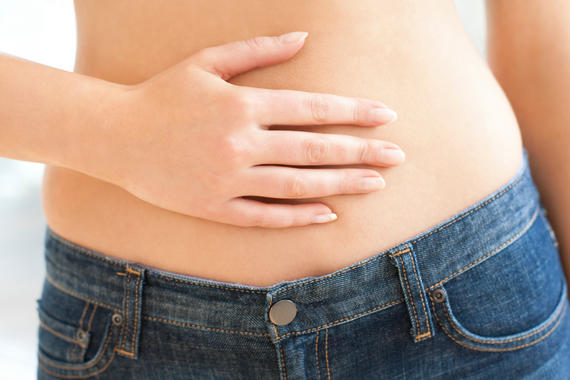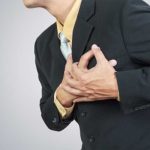Food poisoning is one of the most common & distressing health problem suffered by millions of people each day. When it becomes severe, it leads to death since the infection spreads to your entire body. Over 250 diseases can actually cause food poisoning. The most common ones are the bacterial infections like Campylobacter, Shigella, Salmonella, E.Coli, Botulism and Listeria. So, what to do when you have food poisoning and how to overcome it to feel better? This is something this article speaks about.
Before I tell you what to do when you have food poisoning, you might like knowing as to how long does it take to make you feel better from a food poisoning. If yes then read on. It basically takes about 12 to 36 hours to get rid of food poisoning.
How Is Food Poisoning Caused?
This illness is caused due to eating up contaminated food. Many people will feel better even without further treatments but if the infection is worse, then it needs immediate hospitalization.
Symptoms Of Food Poisoning
The food poisoning symptoms begins 1 to 3 days after the contaminated food is eaten. The symptoms include
- Vomiting
- Stomach cramps
- Feeling sick
- Diarrhea
What Foods Cause Food Poisoning?
The foods, especially susceptible to food poisoning includes
- Poultry
- Raw meat
- Raw shellfish
- Raw eggs
- Junk and oily foods
- Cooked meats
- Soft cheese
- Pre-packaged foods
- Unpasteurized milk
- Pre-packed sandwiches
How Is The Food Contaminated Actually?
Foods can be contaminated in any stage or phase. This can be either during production or during cooking or while processing.
What Causes Food Poisoning?
The major causes of food poisoning includes the below
- When the food isn’t cooked thoroughly (especially pork, kebabs, sausages and burgers)
- When the food isn’t stored properly. It is spoilt but still we eat them
- Leaving the cooked food too long in warm temperatures
- The food being touched by an individual, who is either ill or has dirty hands
- Consuming the food even after it has crossed the expiry date
- Cross contamination
What To Do When You Have Food Poisoning?
1. Limit The Solid Foods
What to do when you have food poisoning? Just stop eating the solid foods. This should make you feel better. Food poisoning is usually characterized with diarrhea, vomiting and stomach cramps. Now, when you have solid foods, your stomach as well as digestive glands is already upset — trying to stuff more solid foods will worsen the condition.
2. Drink Water
When it comes to what to do when you have food poisoning, this is something you must note. Rather than those fizzy drinks, drink plenty of water or natural fresh juice. This makes you feel light and better. The goal is to hydrate your body & replace fluids, which have been lost due to diarrhea and vomiting. This can only be accomplished with water and juice. I understand how hard is to drink something at such times. Trust me – even I have gone through this. Take little and smaller sips.
3. Avoid Dairy Products & Caffeinated Beverages
Caffeinated beverages and dairy products can actually worsen your food poisoning. Stay away from them for few days until you completely heal.
4. Avoid Medications
When it comes to what to do when you have food poisoning, this tip is something to be remembered always. People always end up taking medications that feature diarrhea & vomiting prevention. This can actually slow the recovery process & other natural body functions. The thing is that your body is literally trying to get well from that contamination and you worsen it by taking anti-diarrheal medications.
5.Take Complete Rest
You will be restless once you have food poisoning but walking here and there, vomiting as well as diarrhea will lead to energy loss. It will make you sicker. Just lay down in your bed and rest. This will help you recover faster.
How To Prevent Food Poisoning?
Suffering from a particular disease is far better than preventing it. This is what I feel and I think even you have the same views. So, how to prevent food poisoning? Just read the below points
- Before cooking, wash your hands thoroughly with a good liquid soap
- Once your utensils and dishes are used, have them cleaned with warm and soapy water
- Make use of cleanser for wiping the counters, cutting boards, tables and kitchen surfaces
- Ensure that the raw food like uncooked steak or chicken is stored separately from the foods, which doesn’t require being cooked. This is like preventing cross-contamination
- Once you buy your dairy and other meat products, it has to be refrigerated immediately
- Cook the meat properly and thoroughly so that it kills all the bacteria that can cause food poisoning
- Make sure that raw food, such as packages of uncooked chicken or steak, is kept separate from food that doesn’t need to be cooked, to prevent cross-contamination. All meat and dairy should be refrigerated as soon as you bring it home from the market.
Food Poisoning is common to all food-borne diseases due to harmful viruses, pathogens, parasites and bacteria. The ingestion of damaged, unhealthy, spoilt or pathogens affected food will cause adverse effects no matter the age. Initial symptoms with severe vomiting, diarrhea will move up to organ failures in case of severe food-poisoning.
In general, normal low-level food poisoning will often stop with vomiting, diarrhea and nausea and when properly taken care of medically, its short lived and resolves itself. But in severe cases, heavy dehydration, electrolyte-abnormalities, heavy vomiting will occur. The Center for Disease Control (CDC) estimates that around 45-48 Million (approx.) become ill from food-related diseases each year which has resulted in more than 1.25 Lakhs hospitalizations and around 2000-3000 deaths.
What is the Duration of Food-Poisoning Effect?
If the level is normal, food-poisoning effects stays for about 2-3 days and gradually body becomes normal and functions. If you want you can seek a doctor’s opinion. But, if the symptoms hasn’t slowed down for more than three days, the affected person should get immediate medical attention and shouldn’t rely on any home-remedies or previous medicines.
When it comes to Cyclospora infections, then they will be difficult to detect and also the diarrhea will last for more than a week. This parasite is very harmful and the main potential cause for prolonged food-poisoning symptoms according to medical teams.



